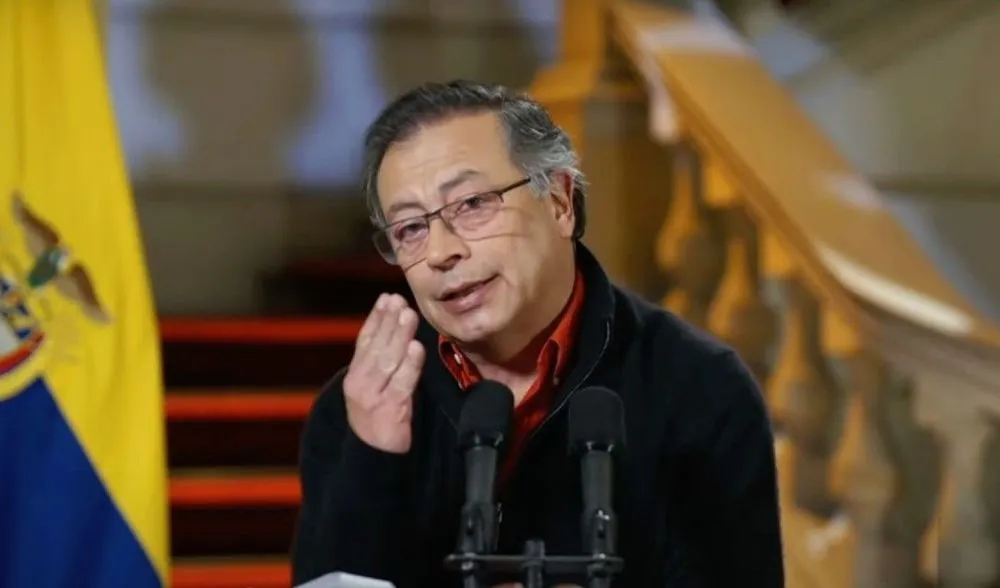Colombian president suggests prior administration illegally sent $11 million in cash to Israel for spyware
Colombia’s President Gustavo Petro said Wednesday that his administration is probing the disappearance of $11 million allegedly used to buy powerful Pegasus spyware, which he said he believes was acquired by the previous administration.
Petro, who said he has asked the Colombian attorney general’s office to investigate the incident, expressed astonishment and fury in a nationally televised address revealing the funds had secretly disappeared.
"How does 11 million dollars leave the country in cash, on a plane... to buy software that spies on cell phones and private communications — political — perhaps for months, on those of the main opposition party at that time?" Petro said, according to a translation of his speech.
In July and August 2021 an Israeli bank reported an unusual payment that was “related to an agreement for 11 million dollars signed between NSO [Pegasus’s manufacturer] and the Colombian police intelligence directorate (Dipol)," Petro said, according to local news reports’ covering his speech.
The cash payments were allegedly sent from Bogotá to Tel Aviv in two $5.5 million batches and should have triggered alerts in the Israeli financial system, Petro reportedly said.
While the Israeli press has previously reported that Colombia has acquired Pegasus spyware, with payments shipped via private jet, Petro’s speech offered the first official confirmation of the transactions.
Petro is Colombia's first leftist president and succeeds a conservative predecessor, Ivan Duque.
Zero-click Pegasus commercial spyware is considered the world’s most powerful surveillance tool and is manufactured by the Israel-based NSO Group. While NSO Group says it only sells Pegasus to governments, the spyware has turned up on the phones of opposition politicians, civil society leaders and journalists worldwide, in countries including Greece, Poland, Spain, Latvia, Serbia and many others.
The controversial spyware purveyor recently asserted that opposition politicians are acceptable targets for infection, according to court documents which surfaced in a lawsuit filed against it by WhatsApp, which says about 1,400 of its users were infected with Pegasus.
Pegasus can monitor all emails and phone calls made on an infected device as well as turn on its camera and microphone to eavesdrop on surrounding conversations and watch people who have been targeted.
Petro reportedly suggested that Duque’s administration had used the software to leak information about his campaign to the media.
"Who else was intercepted?” local news reports said Petro asked in his speech. “Where did the money come from? Why was it not made official in the national budget in the Credit Commission?"
Calling the purchase of Pegasus "money laundering from the state itself," according to local news reports, Petro denounced the apparently secret acquisition as illegal.
“With what court order, as mandated by the Colombian constitution, [were the payments made] so that these interceptions are not a crime?” he reportedly asked in the speech.
Duque and top leaders from his administration have not yet commented on Petro’s charges.
Suzanne Smalley
is a reporter covering digital privacy, surveillance technologies and cybersecurity policy for The Record. She was previously a cybersecurity reporter at CyberScoop. Earlier in her career Suzanne covered the Boston Police Department for the Boston Globe and two presidential campaign cycles for Newsweek. She lives in Washington with her husband and three children.



